Introduction
Do Guinea Pigs Fight: Guinea pigs, those charming and gentle rodents that have captured the hearts of countless pet enthusiasts around the world, are known for their adorable appearance and endearing personalities. These small creatures, also referred to as cavies, make delightful to households seeking a furry companion. However, like any social animals, guinea pigs have their own unique behaviors and interactions that can raise concerns among their human caregivers. One of the most common inquiries revolves around the topic of guinea pig fights. Intriguingly, guinea pigs are not typically associated with aggression or hostility. On the contrary, they are renowned for their peaceful and sociable nature.
These herbivorous rodents are naturally inclined towards forming close bonds with their cage mates, often displaying affection through gentle nuzzles, soothing purrs, and amusing vocalizations. Yet, like any community of creatures, guinea pigs sunburned groups can experience disputes and conflicts from time to time, leading to the perception of fights. In this guinea pig behavior, we will delve into the intricacies of their social dynamics, examining the reasons behind potential clashes and offering insights into how to prevent or manage conflicts among these charming creatures.
While it is true that guinea pigs are generally peaceful by nature, understanding their social hierarchy, territorial instincts, and individual personalities is essential for providing them with a harmonious and enriching living environment. So, guinea pigs’ fight is both nuanced and intriguing, and by the end of this discussion, you will gain a comprehensive understanding of the fascinating world of guinea pig interactions and the factors that can lead to confrontations among these lovable companions.
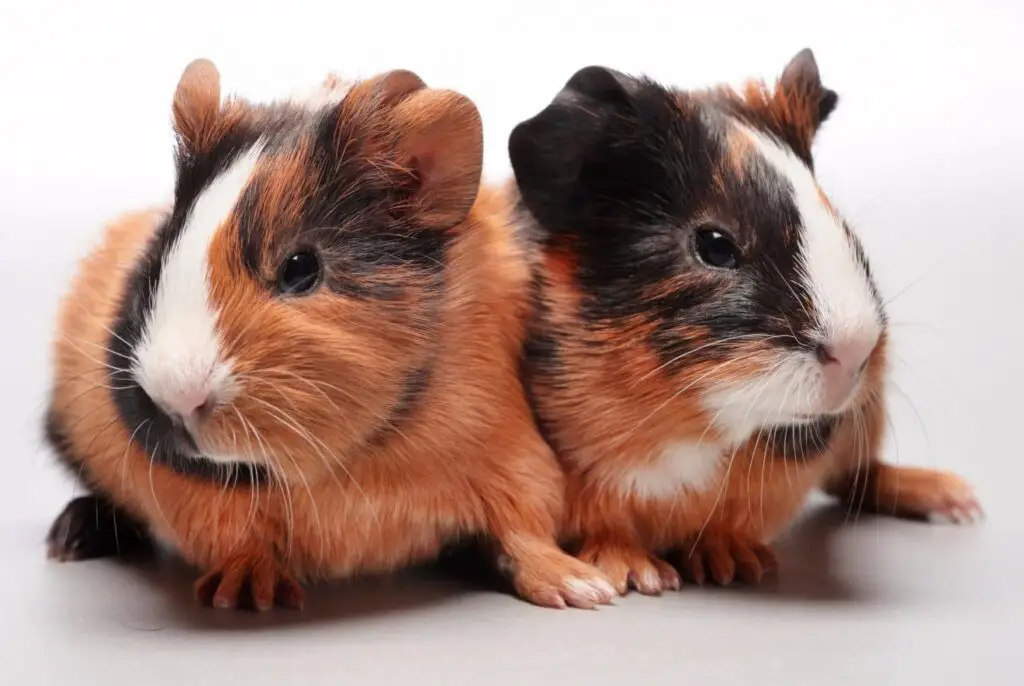
Is it OK for guinea pigs to fight?
Yes, as long the cage is big enough for two cavies. Guinea Pigs are social animals and housing them together can prevent loneliness. When they first meet or move in together they may need to assert dominance. It’s rare that fights break out and even rarer that two male Pigs aren’t compatible but it does happen.
Establishing Hierarchy: Guinea pigs have a social structure within their groups, which often involves establishing dominance. While dominance-related behaviors are normal, such as mounting or chasing, it should not escalate into violent fights. It’s a way for guinea pigs to determine their social rank within the group.
Territorial Disputes: Guinea pigs can become territorial over their living space, especially when introduced to new cage mates or if the enclosure is too small. Territorial aggression may manifest as chattering, nipping, or chasing.
Resource Competition: Guinea pigs may also compete for resources like food, water, or hiding spots. This competition can sometimes lead to conflicts, but it can be managed by providing enough resources for all guinea pigs in the enclosure.
Adequate Space: Ensure that your guinea pigs have a spacious and well-furnished enclosure with multiple hiding spots, food and water sources, and toys to reduce resource competition and territorial disputes.
What happens if two guinea pigs fight?
Your pigs may bare their teeth and stand on their hind legs in a rather menacing fashion. They may chatter their teeth more loudly and even fling themselves at each other. They may even bite and draw blood. If this happens, you will need to step in to avoid your piggies getting hurt.
The most immediate and concerning consequence of a guinea pig fight is the potential for physical injuries. When two guinea pigs become aggressive towards each other, they may bite, scratch, or injure each other with their sharp teeth and claws. These injuries can range from minor scratches and cuts to more severe wounds that require veterinary attention. Guinea pigs have a fragile anatomy, and even seemingly minor injuries can become infected or escalate if not treated promptly.
Fights among guinea pigs can result in significant stress and fear for the animals involved. The physical confrontation and aggressive behavior can cause both guinea pigs to become highly anxious and frightened. Prolonged stress can lead to a weakened immune system, making them more susceptible to illness.
Guinea pigs are social creatures that thrive on companionship. When conflicts occur within their group, it can disrupt social harmony. This strain may lead to ongoing tension and territorial disputes, making it challenging for the guinea pigs to coexist peacefully.
In cases of severe fighting, it may be necessary to separate the guinea pigs temporarily to allow injuries to heal and to prevent further conflicts. However, the reintegration process can be complex, as the guinea pigs may still harbor resentment or fear towards each other. Careful monitoring and gradual reintroduction are essential to ensure their safety.
Can 2 male guinea pigs live together?
Once they have established dominance, it’s possible for two males to live together quite happily. The secret to successful male bonding is: SPACE! You’ll need plenty of it. Male guinea pigs need at least 2.25sqm of cage space in order to be able to establish dominance and retreat when they need some time out.
When considering keeping two male guinea pigs together, it’s essential to select individuals that are compatible in terms of temperament and personality. Guinea pigs, like people, have distinct personalities, and some may be more dominant or territorial than others. Ideally, you should choose guinea pigs that have been raised together or have a history of getting along.
After the initial close monitor the guinea pigs’ interactions. It’s normal for guinea pigs to engage in mild displays of dominance, such as mounting or chasing. These behaviors are typically a part of establishing a social hierarchy and are not necessarily harmful. However, if these behaviors escalate into aggressive fights with biting and injuries, it may be necessary to separate them immediately.
Guinea pigs need ample space to live comfortably, and this is especially when housing two males together. A spacious enclosure with hiding spots and separate food and water dishes can help reduce the chances of territorial disputes. Lack of space can lead to conflicts over resources.
Neutering, or castrating, male guinea pigs can reduce aggression and territorial behaviors. However, neutering doesn’t guarantee that two males will get along. Compatibility still plays a significant role, and neutering is not a guarantee of a conflict-free cohabitation.
How common is it for guinea pigs to fight?
Fighting over dominance is common in guinea pig herds and are fine as long as one guinea pig backs down and acts submissively towards the other. The real problem is when neither piggie backs down and things reach a more aggressive nature. This is when you must intervene and stop guinea pigs from fighting.
Guinea pigs are social animals that naturally live in groups in the wild. Within these groups, they establish hierarchies to maintain order. Dominant and submissive behaviors are part of their social interactions. These behaviors may include mounting, chasing, and occasional nipping, which are generally considered normal and not indicative of serious fights.
It’s quite common for guinea pigs to have mild disagreements or squabbles over minor issues like preferred hiding spots or access to food. These minor disputes are usually resolved without any harm and are considered a normal part of their social dynamics.
Serious fights among guinea pigs, characterized by aggressive behaviors such as biting, fur-pulling, and loud, distressed vocalizations, are less common. When they do occur, they are typically sparked by specific triggers, such as intense competition for resources or territorial disputes. It’s that while these fights are less frequent, they can result in injuries that require immediate attention.
Do guinea pig bites hurt?
Guinea pigs are docile animals, and rarely bite without cause. They tend to ‘mouth’ their owners while being held, just to see if you’re edible! These are not hard bites, though, and don’t hurt. It’s not aggression, just curiosity.
Guinea pigs have small, sharp teeth that are designed for cutting through fibrous vegetation, not for inflicting serious harm. Their bites are typically not very strong compared to animals with larger, more powerful jaws. The bite of a guinea pig can be compared to a pinch or a sharp nip rather than a painful or debilitating injury.
The perception of pain from a guinea pig bite can vary from person to person. In general, most people describe it as uncomfortable rather than excruciating. The degree of discomfort can depend on factors such as the individual’s pain tolerance, the location of the bite, and the force of the bite. Children, the elderly, and individuals with sensitive skin may find guinea pig bites to be more uncomfortable.
While guinea pig bites are not known for causing deep wounds, they can break the skin’s surface, leading to minor bleeding, swelling, or redness. These effects are usually minor and can be easily managed with basic first-aid measures.
It’s that guinea pigs typically bite as a last resort when they feel threatened or frightened. Their bites are more likely to occur if they are mishandled, cornered, or if their personal space is invaded. Proper handling and respectful interactions with guinea pigs can significantly reduce the risk of being bitten.
Can 2 guinea pigs live together?
How to introduce guinea pigs. Guinea pigs are social pets and are therefore best kept in groups of two or more. This enables them to express their natural behaviour, and allows for all of their social needs to be met.
Guinea pigs are naturally social creatures. In the wild, they live in groups, which them with a sense of security and social interaction. Domestic guinea pigs retain this social behavior and are happiest when they have a cage mate to interact with. Having a cage mate guinea pigs with companionship and emotional support. They can groom each other, cuddle, and communicate through various vocalizations, which helps reduce stress and loneliness.
Guinea pigs living together often exhibit more active and playful behaviors compared to solitary guinea pigs. This enriched social environment can lead to a happier and healthier life for your pets. Guinea pigs groom each other as a form of bonding and mutual care. This not only strengthens their bond but also helps keep each other clean.
Guinea pigs are quite talkative and communicate with each other through a variety of sounds, such as purring, chirping, and wheeking. When two guinea pigs are together, they engage in these vocalizations, creating a charming and engaging atmosphere. Guinea pigs establish a natural hierarchy within their pairs or groups, which is usually done without causing harm. This hierarchy helps maintain order and reduces aggression.
Can 2 guinea pigs live in the same cage?
Guinea pigs are very sociable creatures and need to live in pairs or small groups, as they would in the wild. We recommend always having two or more guinea pigs together, with safe introductions to keep them happy. Our guinea pigs need other guinea pigs.
Guinea pigs are naturally social animals, and they often form strong bonds with their cage mates. In the wild, they live in herds or groups, them with social interaction, companionship, and a sense of security. Keeping two guinea pigs together in captivity allows them to engage in natural social behaviors.
Guinea pigs benefit from having a companion to interact with, groom, and snuggle with. Companionship can help reduce stress, loneliness, and boredom, leading to a happier and healthier life for your pets. Having a cagemate can improve the emotional well-being of guinea pigs. They can communicate with each other through vocalizations, such as purring and wheeking, and exhibit more active and playful behaviors when they have a companion.
Guinea pigs groom each other as a sign of bonding and mutual care. This not only helps maintain their fur and skin but also strengthens their bond. When two guinea pigs live together, they will establish a natural hierarchy within their pair. This hierarchy is typically established without causing harm and helps maintain order within the cage.
It’s pair guinea pigs of the same sex to prevent unintended pregnancies. Two females or two neutered males are typically the most suitable combinations. Avoid housing male and female guinea pigs together unless they have been neutered or spayed.
Can guinea pigs live alone if one dies?
Some guinea pigs can get depressed if they are left by themselves when their companion passes away and it could lead to them not eating and drinking. If this happens, they seem lethargic or they just don’t seem quite right, take them to your guinea pig friendly vet as soon as possible.
Guinea pigs are naturally social animals that live in herds in the wild. They rely on each other for social interaction, companionship, and emotional support. When a guinea pig loses its cage mate, it can experience loneliness, stress, and grief.
The guinea pig left alone may become more anxious, withdrawn, and less active. It may exhibit signs of mourning, such as decreased appetite and increased vocalizations. Loneliness can lead to a decline in its overall well-being.
Loneliness and stress from the loss of a companion can weaken the immune system of the surviving guinea pig, making it more susceptible to illness. It may also lead to behavioral problems, such as increased aggression or depression.
If you are able and willing, one option to alleviate the loneliness of the surviving guinea pig is to consider adopting another guinea pig as a companion. When a new guinea pig, it’s to follow proper procedures for gradual introductions to minimize stress and territorial behavior.
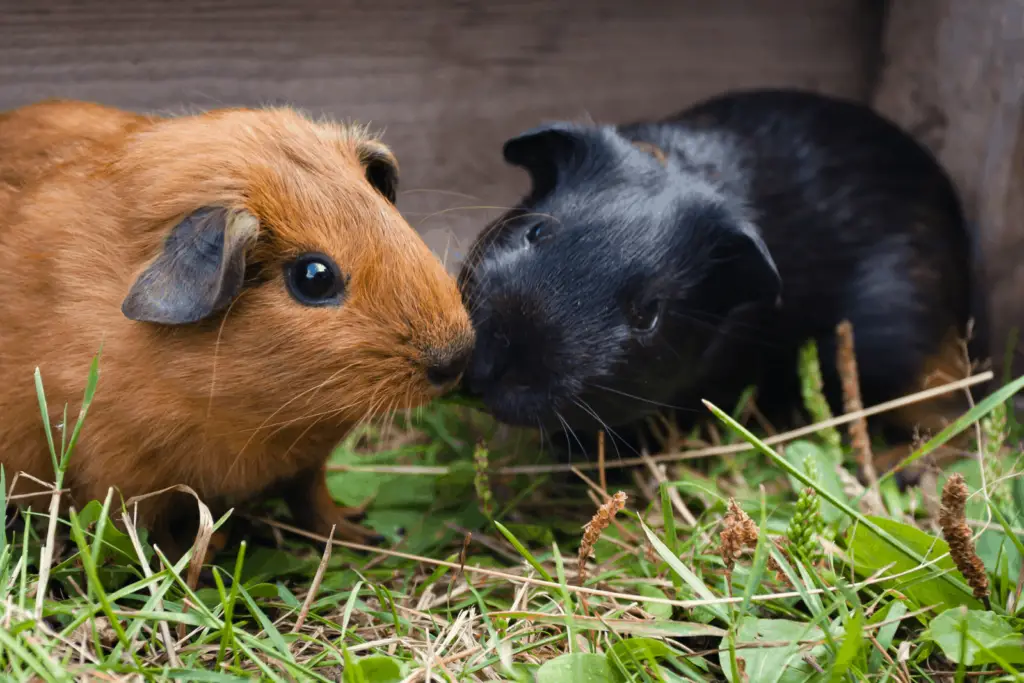
Conclusion
In Guinea pigs fight is one that prompts curiosity among pet owners and enthusiasts. We’ve explored the intricacies of guinea pig behavior and the factors that can lead to conflicts within their social groups. While guinea pigs are generally peaceful creatures, it’s to recognize that disputes can arise due to various reasons. Understanding the social dynamics of guinea pigs is crucial for providing them with the best possible care and ensuring their well-being. These social rodents have a natural hierarchy within their groups, with dominant and submissive individuals. Occasional disagreements or squabbles over resources and space are not uncommon, and they are typically resolved without causing serious harm.
Territorial instincts can also come into play, especially when introducing new guinea pigs into an established group or when space is limited. Careful and room and resources can help minimize territorial conflicts. Moreover, it’s the unique personalities of each guinea pig. Just like humans, they have individual quirks and preferences. Some guinea pigs may be more dominant or territorial, while others are more submissive and easygoing. Recognizing and respecting these differences can contribute to a harmonious living environment.
To prevent or manage conflicts among guinea pigs, there are several steps that responsible pet owners can take. These include providing a spacious and well-furnished enclosure, ensuring a balanced diet, and arranging proper introductions when new guinea pigs to an existing group. Regular social interaction and mental stimulation through toys and activities can also keep guinea pigs engaged and content. While guinea pigs can engage in occasional disagreements, serious fights are relatively rare among these gentle creatures. By understanding their social nature, respecting their individual personalities, and a caring and enriched environment, guinea pig owners can foster a harmonious and happy living situation for these beloved pets.

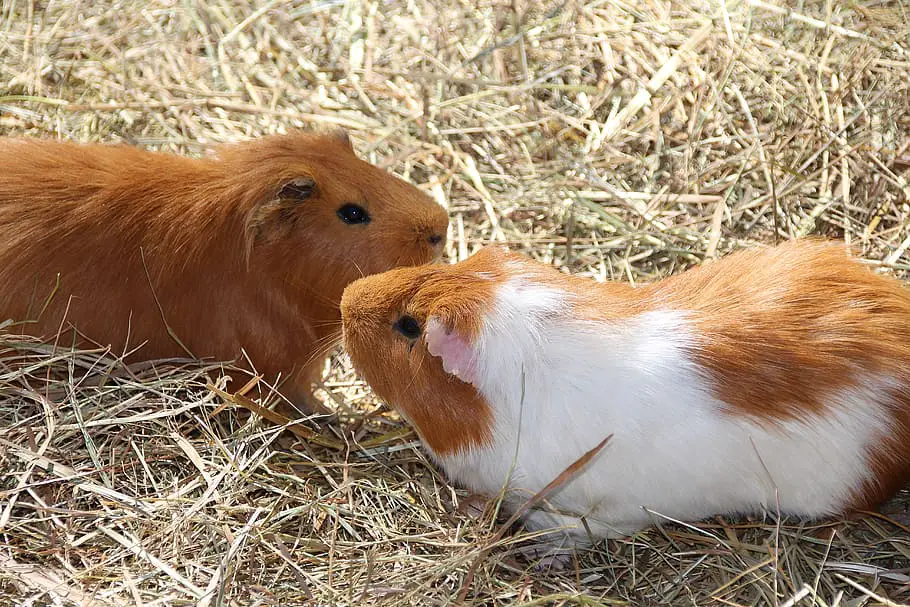
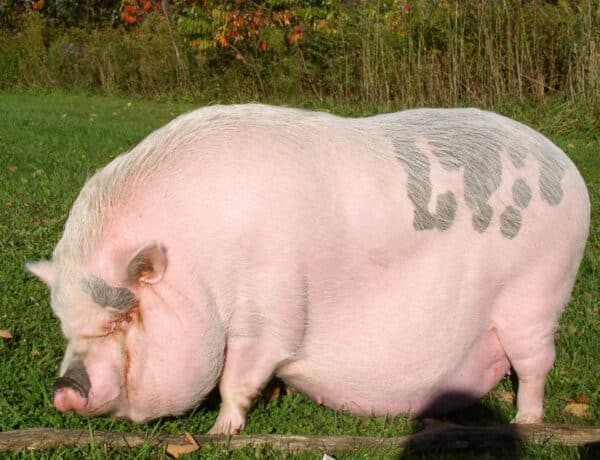
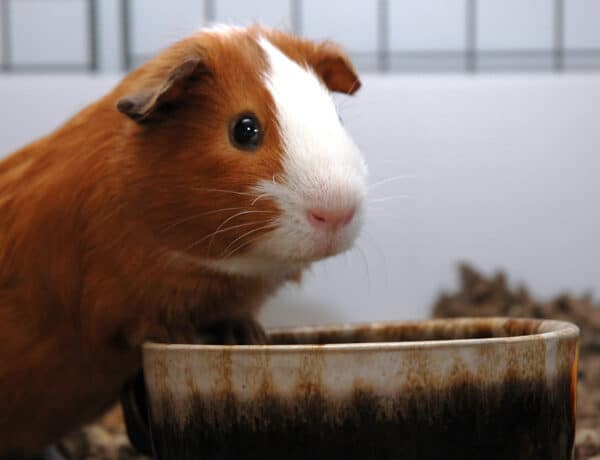
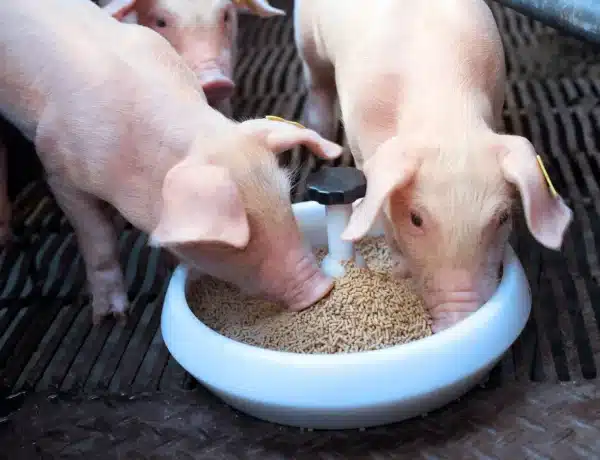
No Comments